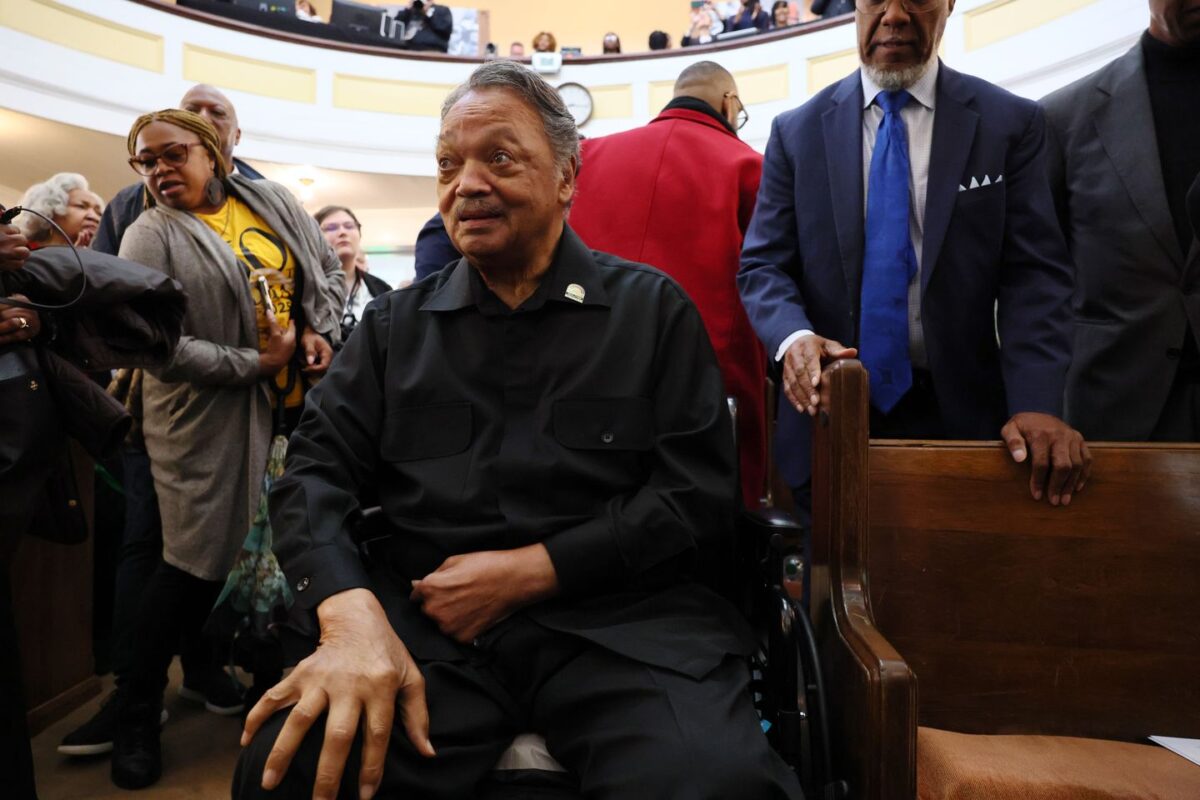Rev. Jesse Jackson spotlights World Parkinson’s Day

In honor of April 11, World Parkinson’s Day, civil rights icon Rev. Jesse Jackson is sharing his experience living with the disease.
April 11 marks World Parkinson’s Day, a day designed to raise awareness and understanding for those living with Parkinson’s Disease (PD). Civil rights advocate, Rev. Jesse Jackson, is among the approximately 500,000 Americans diagnosed with PD. Today, he’s using his platform to celebrate World Parkinson’s Day and spotlight his experience living with the disease.
“April 11th is World Parkinson’s Day. Living with Parkinson’s disease has involved managing symptoms like tremors, stiffness, and impaired balance,” Jackson captioned an Instagram post. “It’s important to maintain a support network, adhere to medication schedules, and stay physically active to help manage the condition’s progression.”
According to the National Institute of Neurological Disorders and Strokes, Parkinson’s Disease is a “progressive movement disorder of the nervous system” that weakens, damages, and kills nerve cells in parts of the brain, causing patients to develop symptoms like tremors, limb stiffness, slowed movement, and impaired balance.
In addition to movement-related symptoms, the Parkinson’s Foundation notes that people with PD can also experience “non-motor symptoms” like depression, anxiety, apathy, hallucinations, constipation, orthostatic hypotension, sleep disorders, loss of sense of smell, and a variety of cognitive impairments.
In 2017, Jackson publicly shared his diagnosis.
“My family and I began to notice changes about three years ago,” he said in a statement, per CNN. “After a battery of tests, my physicians identified the issue as Parkinson’s disease, a disease that bested my father…recognition of the effects of this disease on me has been painful.”
However, the civil rights activist did not see his Parkinson’s diagnosis as a “stop sign” but rather as a signal to make a lifestyle change and invest in physical therapy to slow the disease’s progression.
As previously reported by theGrio, many Black people don’t even know they have the disease. With Black communities’ biological and genetic risk factors for the disease being historically understudied, modern studies reveal the novel risks these populations have in developing PD. Yet, Black people are less likely to be diagnosed with the disease, and Black people living with PD are diagnosed at a later disease stage than white people.
While there is currently no cure for Parkinson’s disease, experts say medicines and exercise can help patients manage the disease.
“We can’t stop the neurodegenerative process or even reverse it,” said Dr. Sule Tinaz, a Yale Medicine neurologist who specializes in movement disorders, including Parkinson’s disease. “But we’re starting to understand how exercise can help change the plasticity of the brain, creating new pathways and strengthening existing ones, thereby changing the functioning of the brain.”

